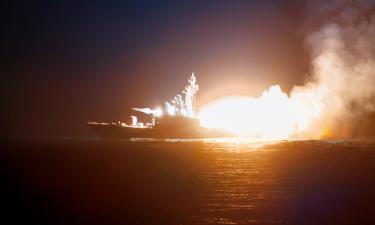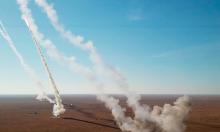Car explosion kills 24 in Iraq
A spate of insurgent attacks Monday killed two dozen holiday shoppers in the southern city of Basra and also took the lives of six American soldiers, making October the deadliest month for the U.S. military in Iraq since January.
A car bomb in Basra, Iraq's second-largest city, exploded about 9 p.m. on popular Algiers Street as residents shopped for clothes and sweets in preparation for the feast commemorating the end of the holy month of Ramadan later this week.
The blast destroyed or damaged at least eight shops, cut off electricity and brought chaos and panic to one of the most crowded parts of the city.
"We saw fire and lots of smoke," said Khudair Mayahi, owner of a dairy products store near the site of the explosion. "Bodies were just lying on the street."
Insurgents elsewhere killed at least six American soldiers Monday, and a Marine was killed Sunday, pushing the U.S. military death toll for October to 92. That is the highest monthly toll since January, when the bloody run-up to parliamentary elections claimed the lives of 106 U.S. military personnel.
The October toll is up sharply from the 49 Americans who died in September. At least 2,025 American military personnel have died in the Iraq theater, nearly 80% of them in hostile incidents, since the U.S.-led invasion in March 2003.
Though the rising death toll has presented political problems at home and abroad for the Bush administration, White House officials have adhered to their stance: that the fallen troops have died for a just cause.
The administration "mourns the loss of each and every one of our men and women in uniform who have made the ultimate sacrifice to make the world freer and more peaceful," White House spokesman Frederick Jones said Monday. "And the best way to honor those who have made the ultimate sacrifice is to prevail in the war on terrorism."
But even longtime international supporters of the U.S.-led invasion, such as Italy, with about 3,000 troops in Iraq, appear to be backing away from the administration. In a television interview aired Monday in Italy, Prime Minister Silvio Berlusconi, now visiting President Bush in Washington, was quoted as saying that he "tried on several occasions to convince the American president not to wage war."
U.S. military officials said the most recent increase in fatalities did not necessarily mean that the insurgency was gaining strength.
"You cannot determine at this point if it is an upsurge or anomaly from one data point," said Army Lt. Col. Steven Boylan, a U.S. military spokesman. "Sometimes [insurgents] are able to achieve their desired results no matter what we do. However, those are limited and far between."
Insurgents have unleashed a flurry of deadly attacks against Iraqi Shiites and American troops in the last week, killing nearly two dozen soldiers and Marines. Almost all Americans killed by insurgents in October were in the capital or the Sunni Arab western and central parts of the country.
Sunni Arabs, who make up about a fifth of Iraq's 26 million people, dominated the upper ranks of Iraq's officer corps and civil service during Saddam Hussein's rule. They now bristle at their loss of power and prestige under a government dominated by majority Shiite Muslims and non-Arab Kurds.
U.S. and Iraqi officials hope that drawing Sunnis into Iraq's nascent political scene can allay Sunni anger.
In contrast to the Jan. 30 vote that Sunnis largely boycotted, dozens of Sunni Arab coalitions, parties and politicians have signed up to take part in Dec. 15 elections, reports Los Angeles Times. I.L.
Subscribe to Pravda.Ru Telegram channel, Facebook, RSS!





